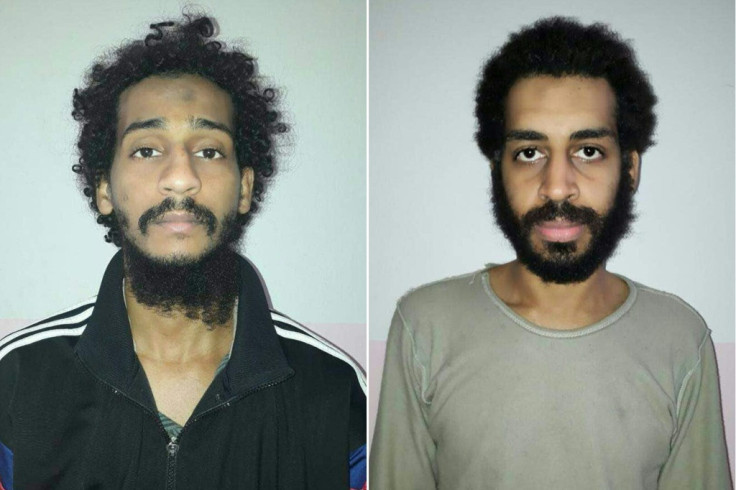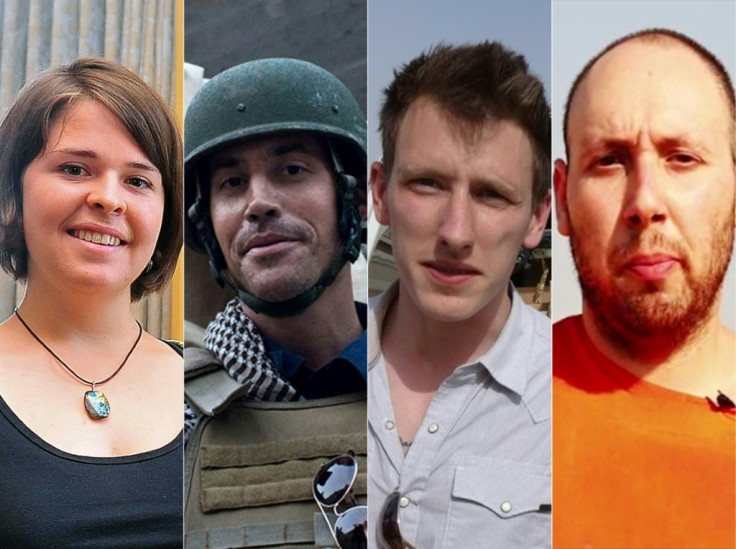US promises Britain not to seek death penalty against IS 'Beatles'
The announcement came on the sixth anniversary of the killing by IS of James Foley, a journalist who worked for AFP and other news organisations.
The United States will not pursue the death penalty against two members of a notorious Islamic State kidnapping and murder unit dubbed the "Beatles," Attorney General Bill Barr said in a letter released by the Justice Department Wednesday.
In a breakthrough in a two-year impasse between Washington and London, Barr told British Home Secretary Priti Patel that Alexanda Kotey and El Shafee Elsheikh, who allegedly took part in grisly videotaped beheadings of Westerners, would be spared execution if placed on trial in the US.
Barr made the pledge to be able to secure crucial evidence against the two Britons, now stripped of their citizenship, which has been withheld by the British government due to the chance they would face capital punishment, which is outlawed in Britain.
"If imposed, the death penalty will not be carried out," Barr said in the letter dated Tuesday.
The letter put the onus on Patel to see if the British system can overcome a tough court challenge by Elsheikh's mother and share the evidence, said to be damning wiretaps, with US authorities.
The announcement came on the sixth anniversary of the killing by IS of James Foley, a journalist who worked for AFP and other news organisations.

"This is a major breakthrough," his mother Diane Foley said, describing Barr's decision as "a huge step which they were not willing to do earlier."
The United States wants to try the two for the murder of journalists Foley and Steven Sotloff and aid worker Peter Kassig during a period in 2014-2015 when IS used videos of their and others' deaths as propaganda.
The four-member unit Kotey and Elsheikh belonged to was dubbed "the Beatles" by their captives due to their British accents.
They tortured and killed victims, including by beheading, and IS released videos of the deaths for propaganda purposes.

Kotey and Elsheikh are being held by US forces in Iraq.
Britain has refused to assume responsibility for the pair, despite their victims including British aid workers David Haines and Alan Hennings.
But British public resistance due to the US death penalty and a British Supreme Court ruling in a lawsuit by Elsheikh's mother, Maha Elgizouli, to block sharing the evidence have led to a two-year impasse in having them placed on trial in the United States.
While the US Justice Department reversal was significant, barriers remain.
Barr wrote that Britain had to clear up the legal obstacles and share the evidence it has by October 15, saying it is "not tenable" to continue holding Kotey and Elsheikh for an extended period.
If the British cannot meet that deadline, he warned, the US would hand the two over to Iraqi authorities for prosecution.
Pressure from the families of the three as well as Kayla Mueller, an American woman who died while being held captive by Islamic State, appeared to help move the US Justice Department to reverse its previous hard line against dropping the death penalty option.
"We want to see our children's murderers held accountable. These things can happen only if the suspects are put on trial before a jury in an American court of law," they wrote in the Washington Post last month.
Diane Foley said Barr's two-month deadline remained a concern.
"We really need to wait to see what the home secretary is able to do," she told AFP.
"If they cannot receive a fair but tough trial here in the US... there is no deterrent for terrorists at all."
Copyright AFP. All rights reserved.
This article is copyrighted by International Business Times, the business news leader





















